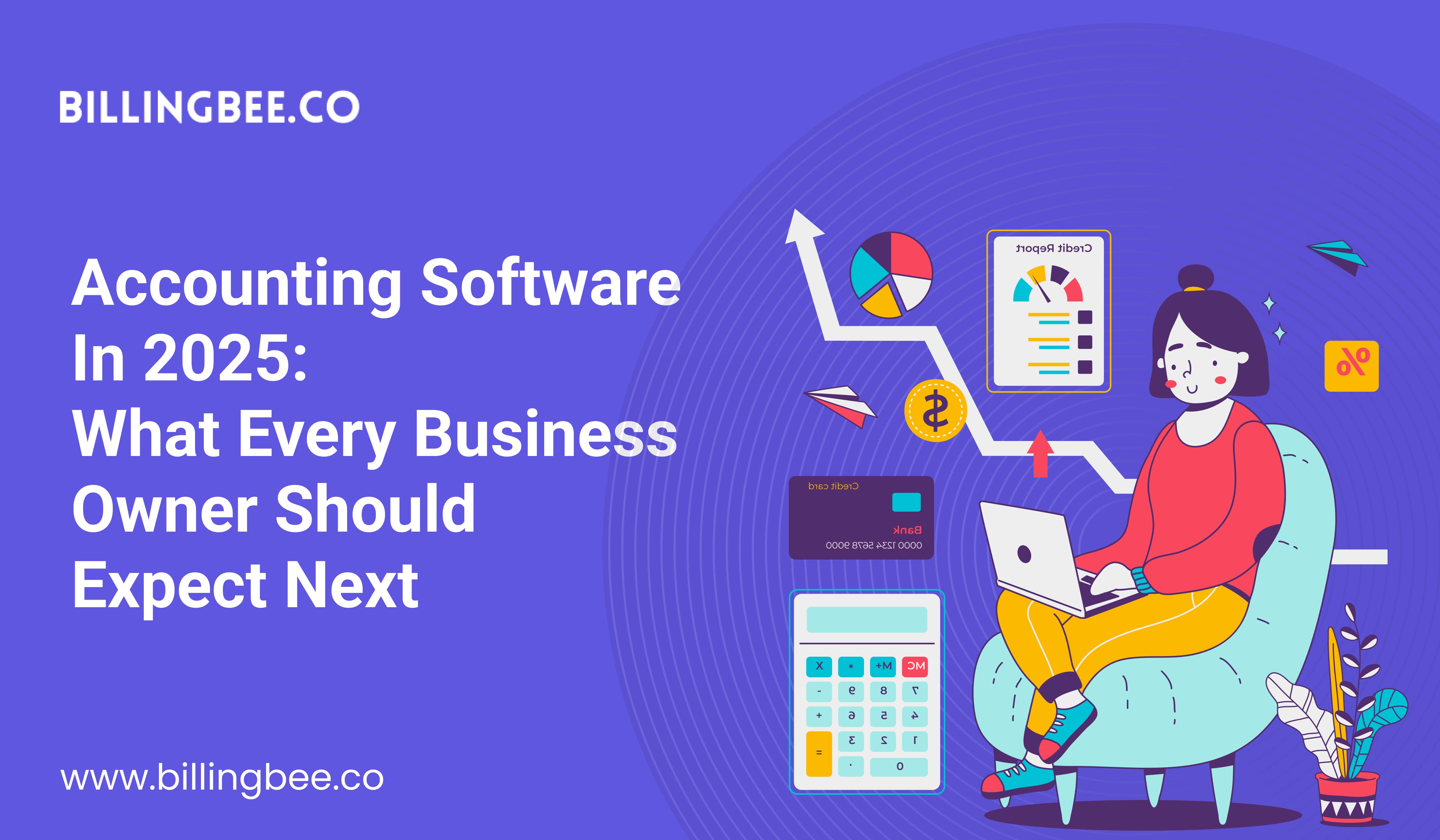Accounting Software in 2025: What Every Business Owner Should Expect Next




Change is no longer a distant forecast in the world of finance—it is already here. By 2025, the way businesses handle money, compliance, and client relationships will be drastically reshaped by new technologies and smarter tools. Business owners across the globe—whether running a startup in Berlin, a mid-sized agency in New York, or a retail chain in Mumbai—will find themselves relying heavily on future-ready platforms that go far beyond simple bookkeeping.
This is where accounting software trends 2025 take center stage. Instead of just managing numbers, accounting platforms are turning into powerful engines for automation, compliance, and decision-making. Let’s explore what’s next and why every business owner should be paying close attention.
1. AI-Powered Automation Will Replace Manual Work
The role of accountants has already shifted from data entry to data analysis, and by 2025, automation will accelerate this trend. Advanced AI algorithms will categorize expenses, generate error-free invoices, and even forecast cash flow in real time. Instead of hiring teams for repetitive tasks, companies will lean on intelligent software to ensure accuracy and efficiency.
Imagine a scenario: an invoice gets uploaded, the system reads it automatically, allocates it under the right category, and reminds the business owner about upcoming tax obligations—without lifting a finger. Platforms like BillingBee are moving in this direction, aiming to cut down manual workload while giving decision-makers more time to focus on strategy.
2. Global Compliance Will Be Built-In
With governments around the world enforcing mandatory e-invoicing, tax digitization, and cross-border compliance checks, accounting tools in 2025 won’t just track numbers—they will enforce compliance. Businesses operating internationally will expect software that instantly adapts to regional tax rules, currency conversions, and reporting standards.
This global-first mindset will make accounting software a critical partner in ensuring businesses don’t fall behind regulatory changes, avoiding fines and saving countless hours spent on legal updates.
3. Cloud-First and Mobile-Ready Platforms Will Dominate
In 2025, the era of desktop-only accounting systems will be long gone. Businesses will demand cloud-first solutions accessible from any device, anytime, anywhere. With remote work becoming standard practice across industries, decision-makers will want to check financial dashboards on the go—whether during travel, from a home office, or while negotiating in a client’s boardroom.
Mobile-ready tools that sync instantly across teams and provide real-time updates will no longer be a luxury—they will be the expectation.
4. Predictive Insights, Not Just Historical Data
Traditional accounting focused on looking backward: profits, losses, and taxes from the past year. But in 2025, software will provide predictive analytics to help businesses plan ahead. Machine learning will evaluate spending patterns, market conditions, and client behavior to project revenues, risks, and opportunities.
For example, a business might receive an alert saying: “Based on your current client payment history, your cash reserves may fall short in two months. Here are suggested actions.” This turns accounting software into a business advisor rather than a simple record-keeper.
5. Sustainability and ESG Reporting Will Be Integrated
As environmental, social, and governance (ESG) practices gain global importance, businesses will need accounting tools that measure carbon footprints, track sustainable spending, and generate ESG reports for investors. By 2025, accounting software won’t only show profit margins—it will also highlight whether those profits align with sustainable business practices.
Forward-looking platforms will embed ESG metrics directly into financial reports, helping businesses maintain credibility and attract socially conscious investors.
6. Personalized Dashboards and User Experience
One-size-fits-all dashboards will no longer work. By 2025, businesses will expect personalized accounting experiences. Owners may want to see cash flow forecasts as their top priority, while CFOs may want compliance alerts front and center. Future-ready software will allow deep customization, ensuring that each user sees exactly what matters most to their role.
Intuitive, human-friendly design will matter as much as features. Complex spreadsheets will give way to clear visualizations, empowering business leaders who don’t come from a finance background.
7. Integration With the Entire Business Ecosystem
Accounting software in 2025 won’t exist in isolation. Businesses will demand seamless integration with CRM, HR, payroll, inventory, and project management platforms. Instead of juggling multiple disconnected tools, owners will expect a unified financial ecosystem where data flows automatically across departments.
This integrated approach ensures better decision-making, reduces human errors, and makes businesses more agile in a fast-changing global market.
What This Means for Business Owners
If you are a business owner today, the message is clear: don’t wait until 2025 to embrace the next wave of accounting technology. Choosing a future-ready tool like BillingBee ensures that your operations remain competitive, compliant, and efficient in a rapidly evolving financial landscape.
The winners of tomorrow will be those who invest in smarter systems today. Accounting software is no longer just about balancing books—it is about building resilient, globally adaptive, and insight-driven businesses.
The future of accounting isn’t about numbers alone—it’s about clarity, agility, and growth. As accounting software trends 2025 unfold, business owners worldwide will expect automation, compliance, mobility, predictive intelligence, and integration as standard features.
Those who adapt early will not only save time and money but also gain a competitive edge in decision-making and client trust. In short, accounting in 2025 won’t just be managed—it will be mastered.